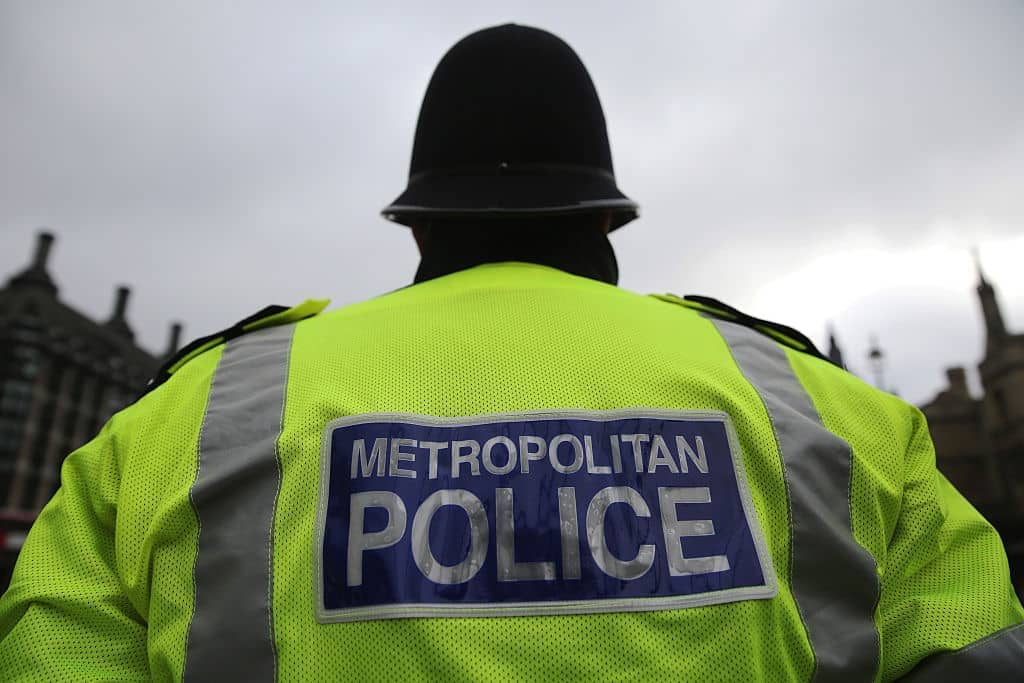Sex offences, violence and fraud have spiked, according to the latest crime figures. Meanwhile, the number of convictions remains staggeringly low: in England and Wales, more than 99 per cent of rapes reported to police do not end in a conviction. In short, there’s plenty for the police to get on with. Yet worryingly, officers are sometimes kept busy investigating legitimate debate. Finally, though, there are signs that police chiefs are seeing sense.
The College of Policing, the national standards body for police, has said that officers need to focus on cutting crime, take a common sense approach and ‘not get involved in debates on Twitter’. Police have been told to avoid recording trivial incidents and reduce the number of ‘non-crime hate incidents’ (NCHI). In short, this means anything said or done by anyone which the victim (or anyone else) saw as being motivated by hostility or prejudice based on race or a protected characteristic, even if it didn’t amount to a crime. Of course, this comes too late for the 120,000 people in the past five years who were recorded by police even though their behaviour did not meet the criminal threshold. An enhanced CRB check could still flag up exiting non-crime hate incidents, meaning that these people could find their hopes of obtaining sensitive employment jeopardised.
This comes too late for the 120,000 people in the past five years who were recorded by police even though their behaviour did not meet the criminal threshold
It also comes too late for Harry Miller, a retired policeman. Back in 2019, someone complained that his tweets on gender recognition went too far; he was visited by police, who told him that although he had committed no offence, they had to ‘check your thinking’. Refreshingly bloody-minded, he sued. Just before Christmas last year, the Court of Appeal said the police guidance behind the practice was unlawful, as it was disproportionate and an undue fetter on freedom of expression.
That guidance has now been changed, though one suspects rather through gritted teeth and with a view to doing the very minimum necessary to comply. Indeed, the small print shows there is a great deal of leeway left to police in deciding what is proportionate or trivial; police, being only human, will always be tempted to make a report in order to keep a persistent complainant quiet.
What counts as non-trivial can also be surprising: a person making a remark at a private party attacking a wheelchair user or a schoolchild insultingly referring to another child’s disability in class could still both end up with a police record. And even on Twitter debates, the beer is pretty small. We get an anodyne statement that ‘disagreement and debate do not mean that hostility is present’ (true, but not really to the point) and then a reminder that a NCHI should still be recorded if there is a basis for a perception that ‘the speech demonstrates hostility against a monitored strand or protected characteristic.’ Plus ça change …
The good news, however, is that this lack of generosity to free speech doesn’t have to be the end of the story. Earlier this year, the government quietly, and sensibly, legislated to allow the Home Secretary to take over from the unelected College of Policing the power to dictate how NCHIs are recorded. Whoever occupies the Home Office under the new PM needs to exercise this power quickly and rewrite the guidance.
The problem with the current regime is that it prioritises the need to seek out and suppress the hate that supposedly lurks everywhere. It gives little primacy to free speech. Its wide reach resulted directly from, and was a hurried reaction to, the 1999 Macpherson report into the way the police responded to the murder of Stephen Lawrence. Macpherson saw ‘institutional racism’ in the Met’s indolence in seeking out the thugs who murdered him. There are now serious question marks over both the assumption of institutional racism and the hypothesis of a pervasive climate of hatred. Worryingly, there are clear indications that NCHIs act as a clear disincentive to people saying what they think.
The proper conservative response is simple but radical. We need a basic rule: speech on its own, reasonable or unreasonable, in public, in private or online, must be excluded lock stock and barrel from the NCHI regime. If it is or might be evidence of a crime, let it be recorded. If it is a crime, for example under public order law, again let it be recorded. But if it is neither, then a person who does nothing more than say what he is allowed to say should be able to rest assured that he will never end up with a police record. Were we to enact this, we could hold our head up as a true champion of free speech. That would be a memorable gesture indeed for any Home Secretary.






Comments